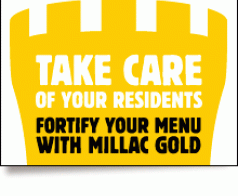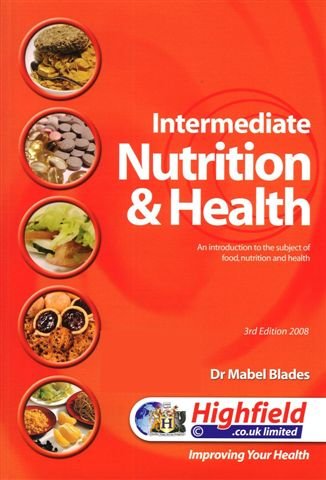New Malnutrition Guide for UK WILL Save Lives and Tens of Millions
of Pounds Each Year
A brand new guide is being launched on 9th May 2013 called Prevention and Early Intervention of Malnutrition in Later Life (best practice principles and implementation guide). The guide, jointly produced by the British Dietetic Association and the Malnutrition Task Force, sets out and defines the principles of best
practice, the moral, legal, quality and financial case for changes in tackling malnutrition in people in later life in the UK. The guide goes a step further and presents real practical advice and support for health care,
social care and care provided by voluntary organisations to deliver the changes needed to combat the current levels of malnutrition in the UK.
The British Dietetic Association (BDA) is the professional association for registered dietitians in the UK. It is the nation’s largest organisation of food and nutrition professionals with over 7,000 members. It is also the
trade union for registered dietitians in the UK.
The Malnutrition Task Force (MTF) is an independent group of experts across health, social care and local government who have joined forces to address the problem of preventable malnutrition and dehydration in older people living in the UK.
Speaking about the launch of the new guide, Helen Davidson, Honorary Chairman of the BDA, said: “For far too long, malnutrition and dehydration has been thought of as a third world problem. The reality is, malnutrition and dehydration is a very big problem here in the UK. The BDA’s recent Mind the Hunger Gap
campaign highlighted that on any given day malnutrition and dehydration blight the lives of around one million older people in their own homes in our communities in the UK. That figure doesn’t take into account those in a hospital or care home settings, so you can begin to see the sheer scale of the problem. “What is unique about this new guide is, it doesn’t just present the problem, it also sets out some of the solutions needed to address it and make life so much better for so many people. It also identifies the tens of millions of pounds that tackling malnutrition could save. The British Dietetic Association is extremely proud to have worked on this guide that has so much potential to do so much good.
Dianne Jeffrey, Chairman of MTF, added: "One in ten older people are malnourished and 93% of them are in the community. This is where it starts for many people, so we must make every effort to improve prevention and early detection of malnutrition. “There are many different causes and factors that contribute to malnutrition and addressing them requires the concerted effort of all stakeholders. Together we can combat preventable malnutrition effectively and thus improve the health of older people, maintain their independence and save money for the local health economy too."
Some of the savings identified by tackling malnutrition include:
• Fully implementing NICE guidance will result in better nourished patients, fewer hospital admissions, reduced length of stay for admitted patients and reduced demand for GPs.
• NICE identified malnutrition as the sixth largest source for NHS savings.
• Early identification and treatment of malnutrition in adults could save the NHS £45.5 million a year even after costs of training and screening.
• The overall resource impact of increased screening, early intervention and appropriate treatment could lead to a saving of £71,800 per 100,000 people for the average community.
• Tackling dehydration across the NHS could save £950 million in the UK.
• The use of oral nutritional supplements is associated with a reduction of overall hospital re-admissions by 30%.
• Regular screening and monitoring all people in care homes has been shown to cost half the amount of treating those who are malnourished.
For a full copy of Preventing and Treating Malnutrition in Later Life, please
go to www.bda.uk.com/news/130507MalnutritionGuide.html.

















